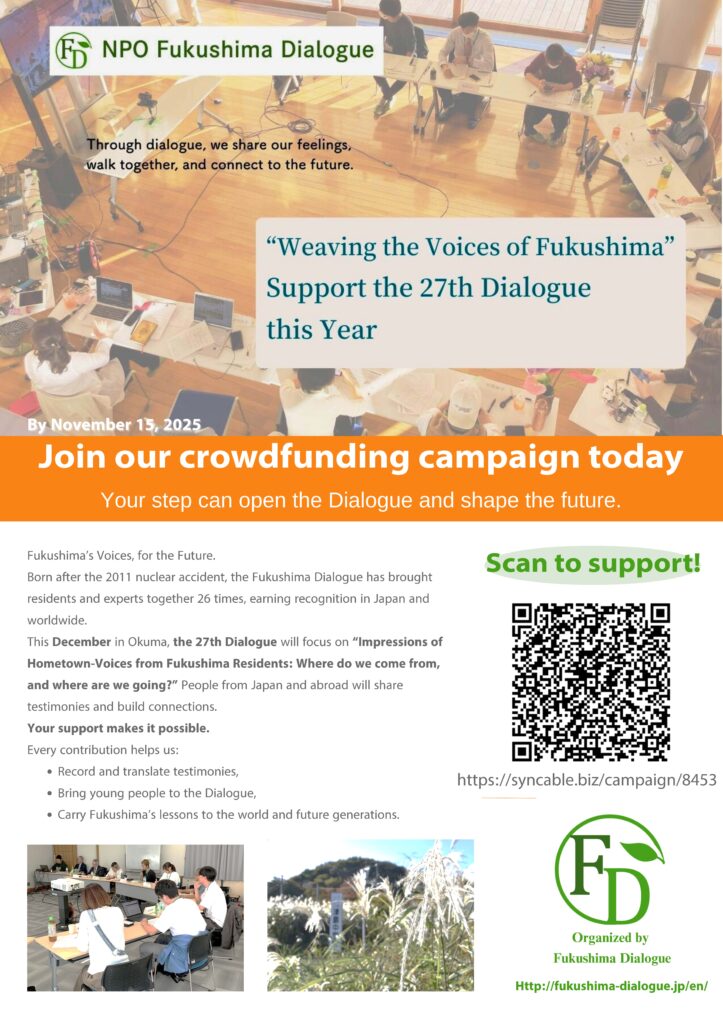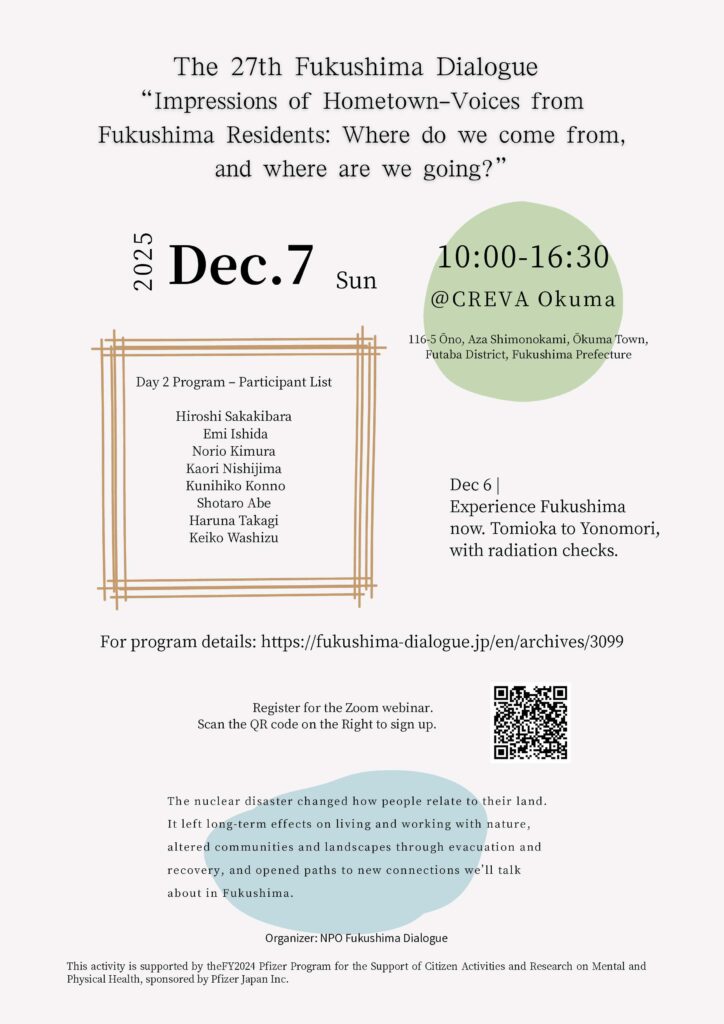The 27th Fukushima Dialogue will be held over two days—Saturday and Sunday, December 6–7, 2025—in Ōkuma Town.
Fifteen years have passed since the nuclear accident. During this time, how has the experience of evacuation affected individuals and communities? At the same time, the number of people relocating to Fukushima and starting new lives here continues to grow each year.
Fukushima is now home to people in a wide range of situations—those who evacuated and settled elsewhere, younger generations with limited memory of the disaster, and many others. This Dialogue will be an opportunity to reflect on the meaning of “hometown” from these diverse perspectives.
Program details will be updated as they are finalized.
Purpose of the 27th Fukushima Dialogue
A nuclear disaster, through environmental contamination caused by radioactive materials, has a profound impact on the connection between people and the land. This impact is especially significant for lifestyles and occupations deeply rooted in the natural environment and local traditions. In the case of the Fukushima accident, traditional ways of life in mountainous areas, as well as occupations that engage directly with nature—such as agriculture, forestry, and fisheries—remain affected even 14 years later.
Moreover, many people were forced to evacuate, driven from their homes and separated from the land they had long been familiar with. Although evacuation orders have been gradually lifted, the prolonged displacement has altered communities, and physically, the land itself has undergone major transformations due to decontamination and reconstruction projects.
The connection between people and the land is not merely a material matter of residence. Through emotional and spiritual bonds, land becomes part of a person’s identity. A nuclear disaster transforms the relationship between people and their land, possibly altering the foundations on which their lives are built.
In this 27th Dialogue, we aim to create an opportunity to share and reflect on how the connection between people and the land has changed, and how new relationships with the land can be nurtured and rebuilt for the future.
Update (Oct. 3, 2025)
- The venue for the Dialogue on December 7 has been confirmed: the 1st floor conference room of the Industrial Exchange Facility CREVA Ōkuma, located in the Ōno Station West Exchange Area, Ōkuma Town.
- Until November 15, we are running a crowdfunding campaign on Syncable.
We would be truly grateful for your support—whether through a donation or by sharing the campaign with people around you—to help us hold the Fukushima Dialogue.

Update (Oct. 20, 2025)
・The endorsement from Ōkuma Town has been confirmed, and eight participants for the second-day Dialogue have also been decided.
Updated (Nov. 4, 2025)
・The trail course for the first-day program has been finalized as a route through Tomioka Town, Fukushima Prefecture.
・The Japan Health Physics Society has officially joined as a supporting organization.
Updated(Nov.10,2025)
The 27th Fukushima Dialogue is just around the corner.
We’re delighted to share that the Day 2 program (Sunday, December 7) will be live-streamed via ZOOM.
Register for the webinar here !
If you can’t make it to the venue, you can still take part from your home or anywhere with an internet connection.
This Dialogue will bring together diverse voices reflecting on “hometowns” and the paths we’ve walked since the Fukushima accident.
We warmly welcome you to join us online and be part of this meaningful conversation.

